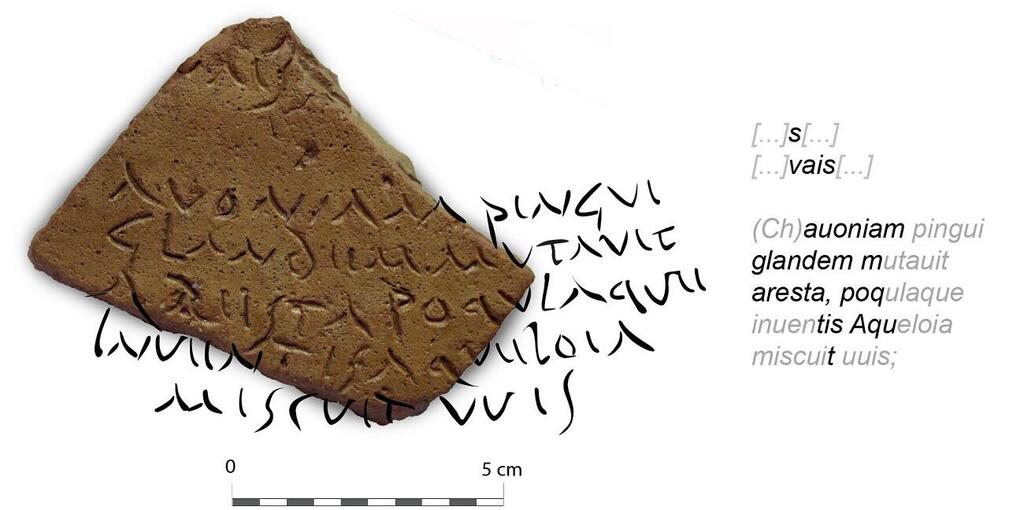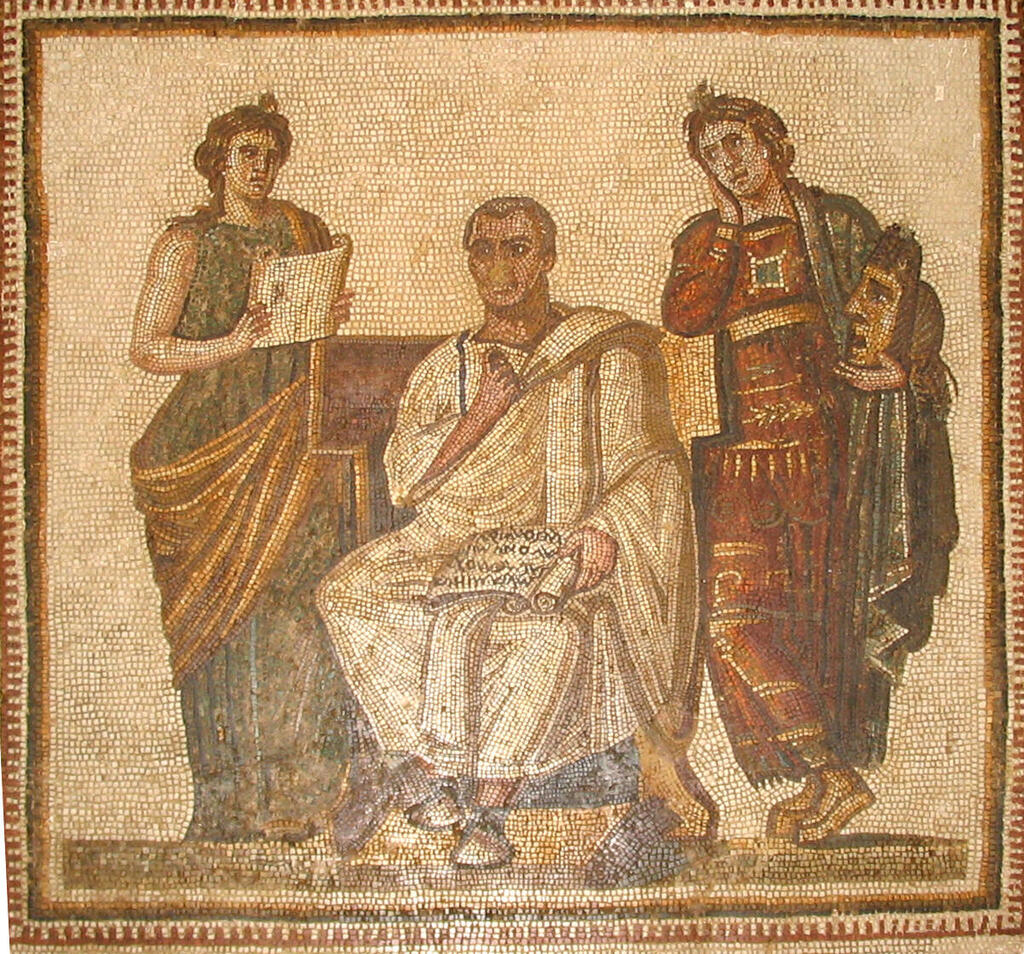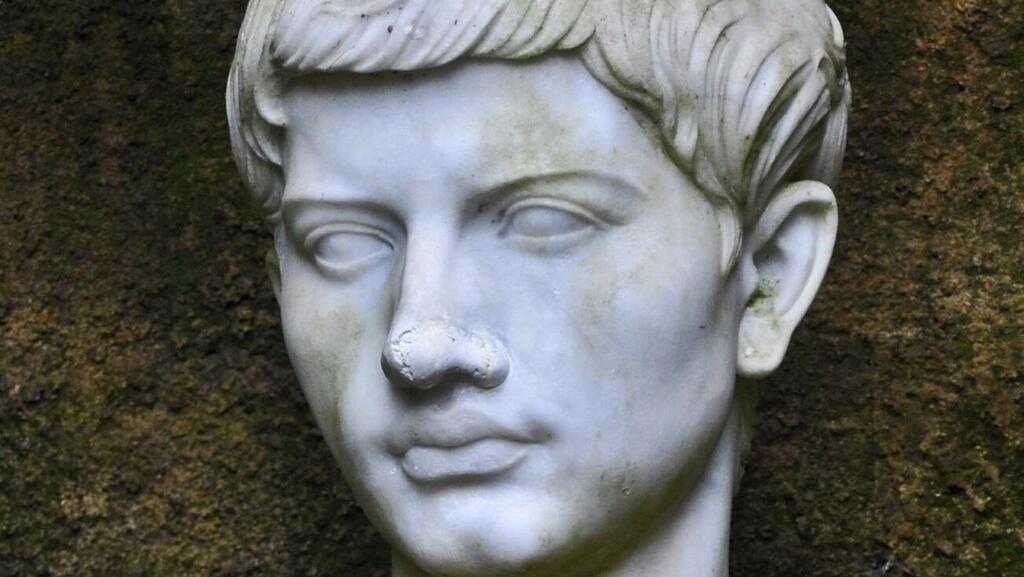A team of archaeologists has successfully deciphered a verse written by Virgil, the renowned poet of Rome's Golden Age inscribed on a fragment of a Roman jar made of clay. Experts call this discovery "extraordinary" since it marks the first time Virgil's verses, which were traditionally used for teaching children to read, were found on a commercial container.
Read more:
The European archaeological community is in awe of the recent discovery, which has left them astounded. Unveiled during a survey conducted in the municipality of Hornachuelos (Córdoba), the tiny fragment measuring just 6 centimeters ( 2.3 inches) wide and 8 centimeters (3 inches) long was a part of a Roman oil amphora from the Betica region, estimated to be around 1,800 years old. The discovery was made by researchers from OLEASTRO, a collaborative project of the Universities of Cordoba, Seville, and Montpellier.
The discovery initially appeared unremarkable, considering the abundance of ancient Roman pottery fragments that have been unearthed. Rome's Monte Testaccio, a man-made mound composed of Roman-era pottery, provides a wealth of information about the olive oil and wine industries of that time.
The research team, therefore, was not taken aback when Francisco Adame, a resident of Ochavillo village, handed them the fragment he had discovered while strolling through Arroyo de Tamujar, an area near Villalón (Fuente Palmera).
The presence of inscriptions on the amphora was also not an unusual occurrence. It is common to find information printed on amphorae, including details about producers, quantities, and quality control. These inscriptions have been instrumental in unraveling the history of agricultural trade during the Roman Empire.
Similarly, the discovery of an amphora fragment in the Guadalquivir River plain, renowned as a major hub for olive oil production and trade in the Empire, was not surprising. In the vicinity of Corduba (modern-day Cordoba), a significant portion of the olive oil consumed in Rome was produced and packaged. Mount Testaccio preserves remnants of amphorae with "Betica" seals, attesting to this fact.
Initially, the fragment of an amphora bearing inscriptions appeared to be just another unremarkable piece of pottery. However, everything took a significant turn when the researchers successfully deciphered the epigraph, uncovering the following words:
"S vais avoniam glandemm arestapoqv tisaqv it"
By utilizing overlaying techniques, the scholars managed to deduce that the text corresponds to the seventh and eighth verses of the first book of "The Georgics," a renowned poem by Virgil. This ancient literary work, composed in 29 BCE, focuses on the themes of agriculture and rural life. The revelation of these verses provided a direct connection to the celebrated poet and his enduring contribution to Roman literature.
Virgil, the esteemed poet of his time and for centuries thereafter, gained widespread popularity. His epic poem, "The Aeneid," was a staple in school curricula, and its verses were frequently used as educational exercises for generations. Consequently, it is not uncommon to encounter Virgil's verses inscribed on remnants of ceramic construction materials, with many scholars speculating that these tablets served both educational and funerary purposes. In the case of funerary use, Virgil's verses were often employed as epitaphs.
However, the recent discovery of Virgil's verses on an amphora raises intriguing questions. Why would his words appear on a vessel designed for the oil trade, and why were excerpts from "The Georgics" chosen instead of "The Aeneid"? These inquiries prompted the researchers to recognize the exceptional significance of the small pottery fragment, as no previous evidence had linked Virgil's verses to amphorae intended for the oil industry.
Published in the Journal of Roman Archaeology (University of Cambridge), the authors of the study, led by Dr. Iván González Tobar, put forth a compelling argument. They propose that the verses were inscribed on the underside of the amphora with the intention of going unnoticed, serving as a discreet symbol of the writer's knowledge and cultural refinement. This finding suggests a certain level of literacy within the fertile Guadalquivir area, where the piece was discovered.
Regarding the identity of the writer, the authors explore various possibilities. It could have been a literate worker associated with the establishment or someone from nearby villages with ties to an aristocratic family who owned the factory. They also entertain the idea that a young worker, as child labor was common in such establishments, might have been responsible for the inscription.
The amphora from Hornachuelos/Fuente Palmera, adorned with these unique verses, has now become a truly extraordinary artifact, raising numerous compelling questions that demand further investigation.




